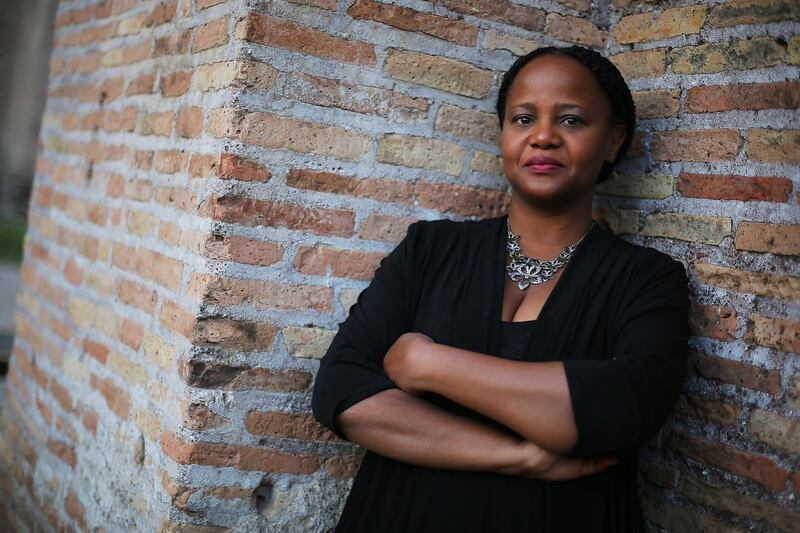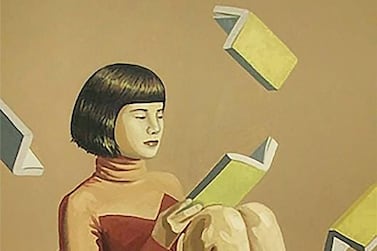“I think Haiti is a place that suffers so much from neglect that people only want to hear about it when it’s at its extreme,” Edwidge Danticat says. “And that’s what they end up knowing about it.”
Maybe that is why the characters in her aptly titled short-story collection Everything Inside are not going through urgent dilemmas of catastrophe and displacement, unlike in her previous works. Their distress is from within and their exile is interpersonal. The hardships afflicting them are somewhat more quotidian, albeit as transformative – this includes marital infidelity, betrayal and staring down the barrel of your own mortality.
Danticat gives us an up-close, intimate peek into the lives of Haitians and Miami’s Haitian diaspora, and she predominantly focuses on the ways in which families are torn apart because of either tragedy or the fraught politics of the Caribbean nation.
The book begins with Dosas, in which a nursing assistant is taking care of an old patient when she gets a call from her ex-husband informing her that Olivia, the woman he left her for, has been kidnapped. Olivia was initially Elsie's close friend whom she later introduced to Blaise, and soon they became "a trio of siblings, of whom Olivia was the dosa, the last, untwinned, or surplus child". Obviously, soon this equation inverted. Now, Blaise wants her help in securing money to pay Olivia's ransom. Without giving away any spoilers, the ending to this story is a stark look at the tenuous nature of trust.

Danticat has a knack for splicing open dysfunctional relationships, painting their messy entrails in all their glory. The narrative is sprinkled with insightful little gems about relationships like "... some marriages, in hindsight, just seem like detours".
In The Old Days is about a daughter who flies over to meet her father for the very first time while he is on his deathbed. Haiti is forever in the background, contextualising the strained situation at hand. The daughter is told by her mother that her parents' marriage, like many other marriages in the country, fell apart after the dictatorship ended in Haiti. Her father was among those who wanted to go back and rebuild the country. "He still chose a country over me, over us," she says.
All the stories depict characters with all-too-human foibles who are now facing the consequences of their decisions.
Danticat also deftly deals with the yawning class difference that is prevalent in Haiti. In The Port-au-Prince Marriage Special, the cook's daughter, who is also the employer's nanny, is diagnosed with Aids. The cook has a nagging fear about what would happen to them if their employers move out of Haiti, since they are footing her daughter's medical bills. Reliance on wealthy business owners, who are mostly tourists, for their bread and butter, is how most native Haitians sustain their families.
In Hot-Air Balloons, Neah and Lucy are roommates from backgrounds that could not be more different. Lucy considers herself to be from the "left side of the hyphen", and once yanks a flyer off the bulletin board at her workplace advertising a women's organisation because the photographs of undernourished Haitian women remind her of her mum. Neah, the child of academics and Lucy's best friend, wants to volunteer for this organisation but Lucy, secretly, doesn't want to accompany Neah to Haiti for this purpose. Having grown up poor, Lucy detests that volunteer help was required in the first place. She wants, instead, to see the tourist version of Haiti – the idyllic white sand beaches, the mountains, the museums and cathedrals.
The paradoxical nature of parenting is at play in the case of Carole, Jeanne's mother, in the insightfully written Sunrise, Sunset. Jeanne is suffering from post-partum depression, but, according to Carole, only she has the right to be sad since she has been through so much and experienced terrible things in Haiti. The most nuanced story in this collection, it incisively dissects how emotionally demanding being a parent is and how you are always working against your best interest, since your instinct is to keep your child close to you. "You are always dreading the separations, while cheering them on to get bigger, smarter, to crawl, babble, walk, speak, to have birthdays that you hope you'll live to see, that you pray they'll live to see," Carole laments. She is losing her memory to age while regretting not having more time to enjoy with her grandson.
The Gift is one of my favourite stories of this book, and is about a rendezvous between a woman and her married beau. They struggle to reconnect after the tragic 2010 Haitian earthquake in which the man lost his wife and child. The moral dilemma in this story is mostly dealt with in retrospect, portrayed with well-calibrated pathos.
What ties it all together is that we mostly meet the characters in these stories at either a crossroads in their life or mid-crisis and Danticat wrings every ounce of emotion out of these charged circumstances with great dexterity.
Reconciliation to estrangement, regret to ignorance, forgetting your past to revisiting your childhood – this sublime collection exposes the contradictions that make up the fabric of our life's rich tapestry.







